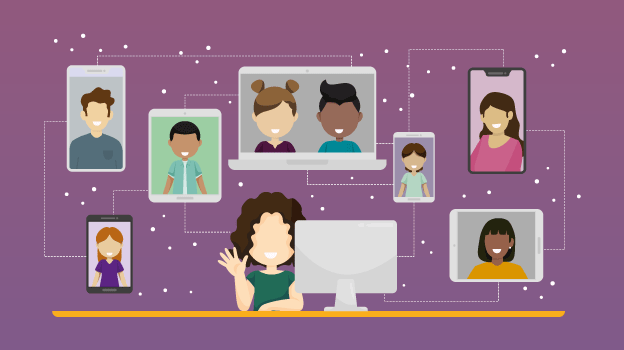
8 Myths about online education debunked
There's no disputing the fact that studying to earn a degree via the web is fast growing as an option to the conventional classroom format of education.
5.8 million USA students are enrolled in at least one online course.
But despite the increasing popularity of online learning, a universal unfamiliarity has led to the abounding of several myths or misconceptions.
So feel free to place the following 8 myths about online education right next to unicorns, dragons and the treasure at the end of the rainbow!
-
Online does not mean high quality
This might be true to a certain extent as the academic standards might differ from one institution to another. However, most of the reputed colleges and universities in the USA rigorously try to maintain parity between on-campus and online programs with respect to quality of teaching standards.
It all boils down to the robustness of the infrastructure required for providing online instructions, the experience of the teachers, and their level of competence in handling web-based tools for education via the internet.
-
Earning an online degree is easy
Though you may have the flexibility of studying at your own pace, you'll also have to take into account that there'll be nobody to remind you time and again about a particular project or assignment which has to be submitted by next week.
With online education, you need to be more self-motivated and dedicate more time when it comes to completing a web-oriented course whose syllabus or curriculum may be the same as the brick-and-mortar program.
-
Online courses are unaccredited or unaffiliated
The validity of an online program depends upon the accreditation standing of the academic institution offering the course, just like a traditional study program.
You can login at the website of Council of Higher Education Accreditation that regularly publishes and updates a listing of approved authorities or bodies that offer affiliations to higher education establishments.
-
Online credits are non-transferable
Contrary to what you might think, transferring credits of an on-campus course might be as harrowing as reassigning credits for an online program.
But more often than not, the college or university you're submitting your application to may not be in a position to make out whether the unaccredited program was pursued in a campus or followed up online.
-
Interaction with instructors is non-existent
Though you cannot communicate with the mentor or lecturer face-to-face, there are opportunities to exchange views and opinions via a plethora of web-oriented modes.
For instance, you can fix an appointment to interrelate with your teacher through emails, online chat sessions, Skype, webcasts, and podcasts. Plus, there are plenty of blended learning programs you can explore.
-
Cheating is rampant in online courses
Many educators, who have extensive experience in both online and offline teaching modes have gone on record iterating that cheating as a malpractice can be resorted to in either of the two educational approaches.
Though you can get an individual or institution to appear in a web-based exam on your behalf, be mentally prepared when you find out your answer scripts have been rejected on the charge of plagiarism. Instructors now have more tools than ever to use for cross checking plagiarism.
-
Employers don't recognize online degrees
Some employers still screen out candidates based on Ivy League degrees. But more and more them are starting to realize that real skills are more important than certificates, and focus less on how candidates get those certificates.
And if we think about the relatively new and fast-growing industries like machine learning, software development, cyber security or even digital marketing, an online degree can actually impress more than a traditional one.
-
Reputed schools and universities don't have online programs
Today's students feel at ease in an online environment and use technology to support their learning. Some institutions offer an online program as a way of responding to the 21st century learning needs.
Big reputable names like Harvard, Stanford, and MIT already launched online courses. What's more, many of these online courses are free. There are at least 250 Ivy League courses that you can take online at no cost but your time.
Resources
- onlinelearningconsortium.org
- chea.org
- forbes.com
- medium.freecodecamp.com
Visit our Blog for insightful posts on edtech for K-12 and Higher Ed.







